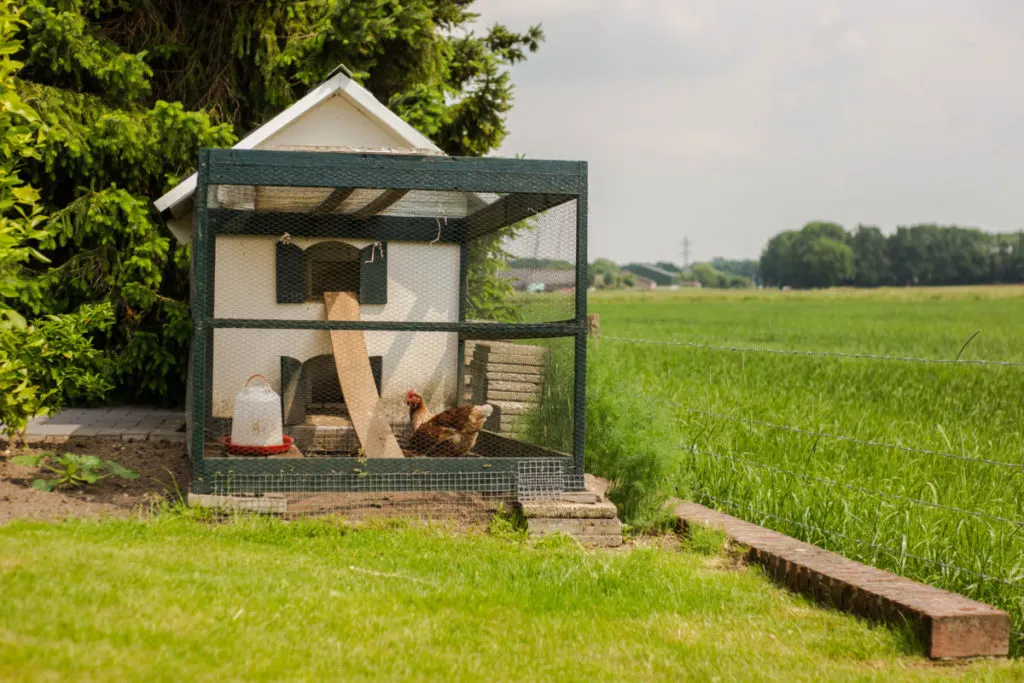
When we first delved into the world of chicken keeping, we read every book we could get our hands on to prepare. Our biggest concern was the chicken coop, and how to make our new flock of hens happy and comfortable on our little city lot.
The advice we received was all over the place. So we ended up mostly winging it and hoping for the best. Back then there was not a lot of information out there about raising chickens, especially not about raising a small urban flock.
Needless to say, we made a ton of mistakes, and having now corrected them, I’m happy to report our chicken raising adventure is going very well.
These are the ten things I wish someone had told me, the ten biggest mistakes you can make while building and maintaining your chicken coop. If you can manage to avoid all of these, you’ll be well on your way to a very happy, healthy, and safe flock of chickens!
The Top 10 Chicken Coop Mistakes
1. Not predator-proofing the coop

Predators are the bane of every chicken keepers existence. They’re always lurking in the darkness, ready to attack when opportunity strikes. Don’t even give them the chance.
The biggest mistake chicken keepers make is to not spend time and energy thoroughly predator-proofing their chicken coop. Predators are extremely intelligent and when they’re hungry, they’ll try anything to gain entry to your flock.
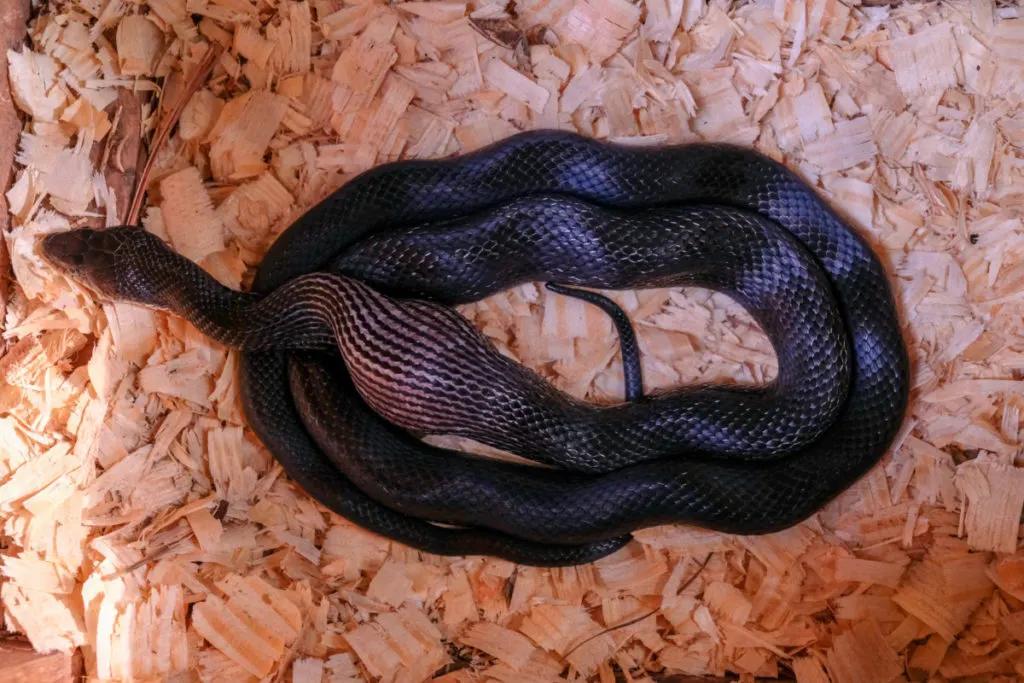
Cover all your bases and predator-proof your coop like a boss.
2. Not protecting the chicken feed from pests
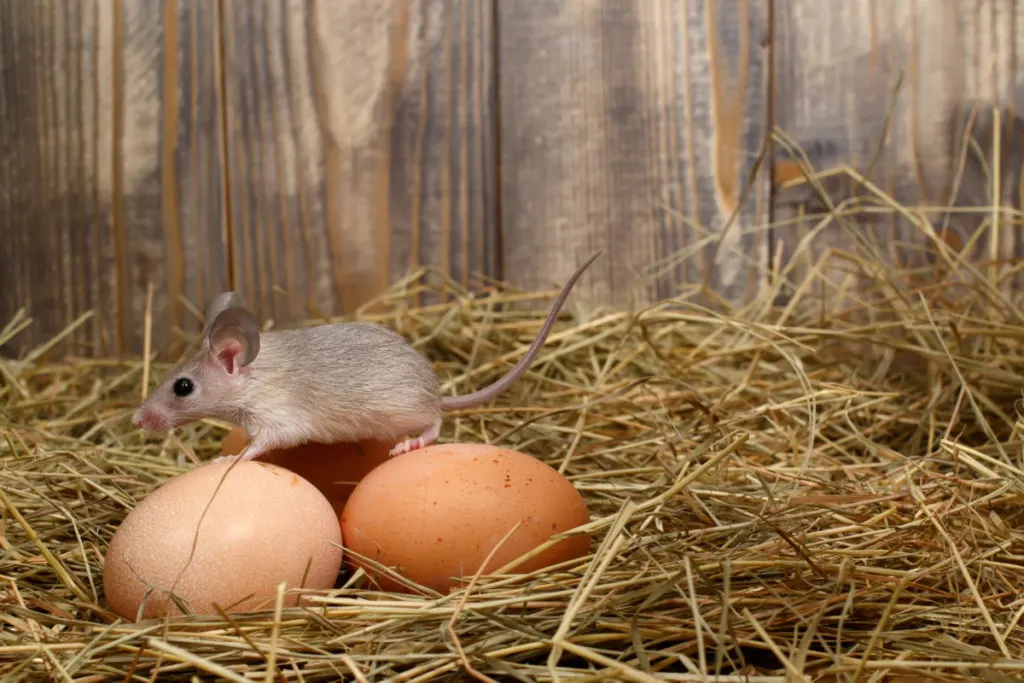
Pests are the second-worst problem chicken keepers face. The biggest reason you may have issues with pests is that you’re providing them with free food. Mice, rats, and chipmunks will take up residence in and around your coop if they know there are tasty treats inside for them.
The best way to prevent pests from eating your feed is to keep it in a galvanized steel garbage can with a tight-fitting lid.
We keep the bulk of the chicken feed in there and provide a few days’ worth of feed in the chicken feeder. To truly keep pests at bay, only keep the chicken feeder out during the day, bring it into the house or put it into a steel can every evening. The chickens will not eat while they roost so you don’t need to worry about keeping feed out for them at night.
Don’t forget to also keep chicken treats, kitchen scraps, and eggs somewhere safe at night, as pests will gladly eat those too!
3. Not providing a dust bathing area
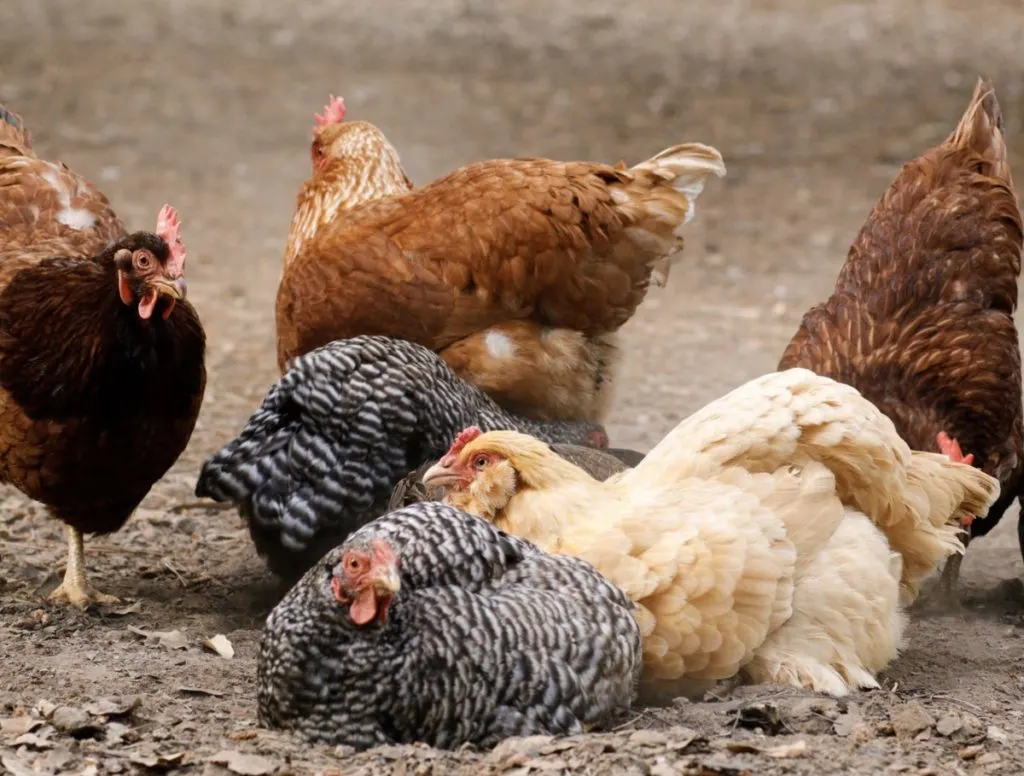
Chickens depend on dust baths to keep themselves healthy. Dust baths help chickens to rid themselves of parasites like lice and mites. They also help loosen dead skin and old feathers to make space for new healthy feathers to grow in.
Dust baths are important at all times of the year. If you free-range your flock, you may see them taking dust baths in your yard or garden. But what happens if you can’t free range your flock, or if the ground is covered in snow?
That’s when it’s time for you to provide a dust bathing space for your flock. In the winter we create a dust bathing corner in the enclosed chicken run. It is covered to keep out snow and rain, and gives the chickens the opportunity to stay healthy even during the winter. It’s important not to put the dust bath into an enclosed coop, because the resulting dust clouds aren’t good for your hens health. Make sure the space you put the dust bath in is well ventilated to avoid this.
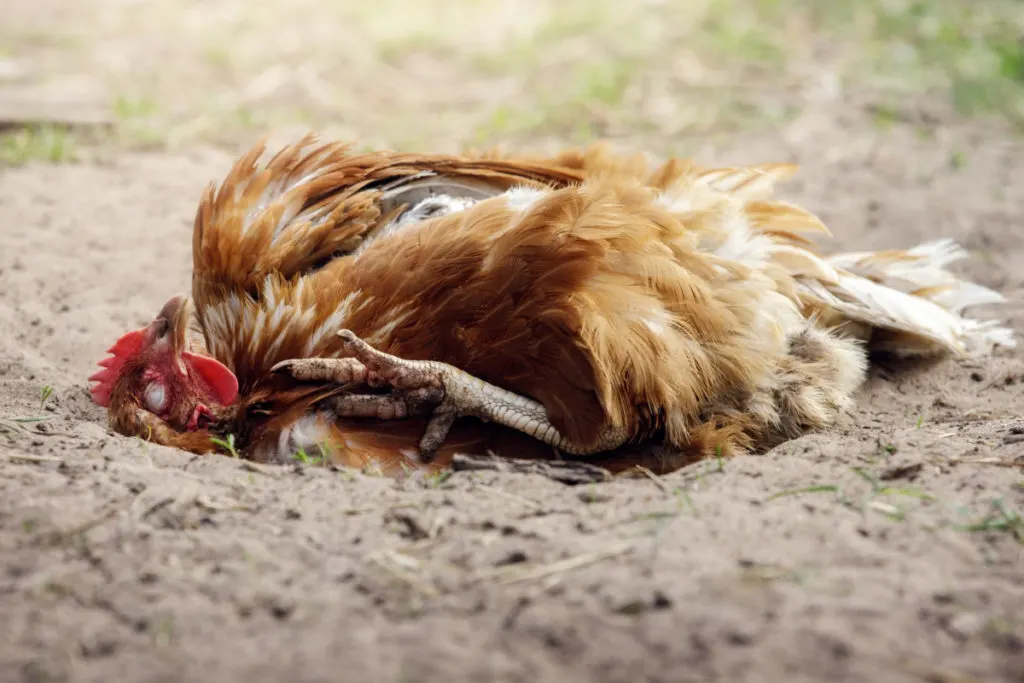
It’s so easy to build a chicken dust bath, you can make your own in just a few minutes following our simple DIY here.
4. Not using the proper bedding
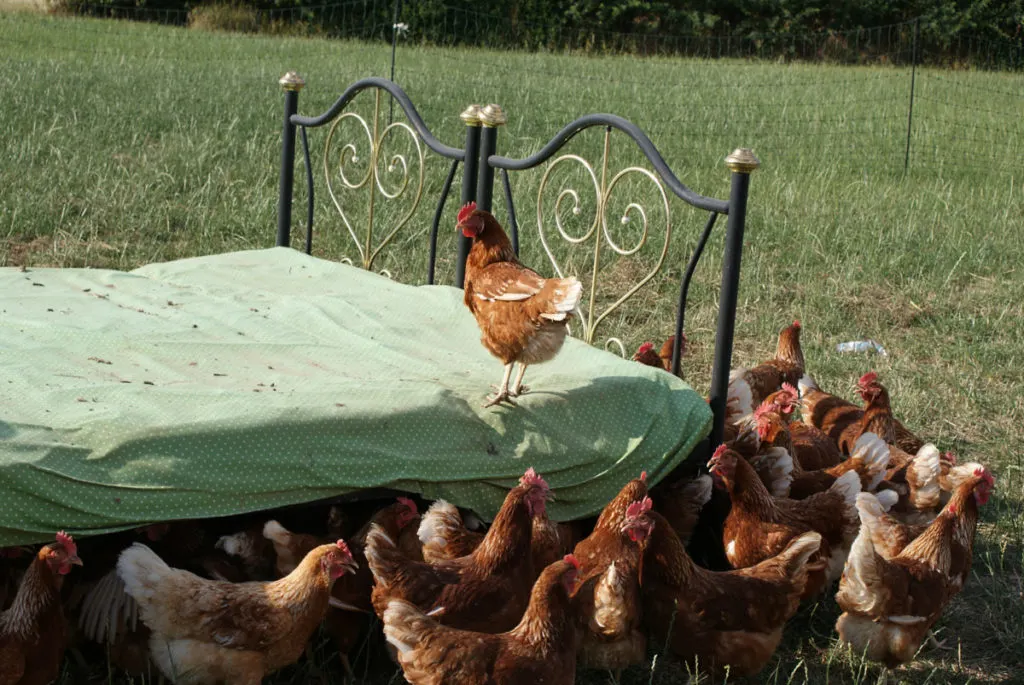
Chickens aren’t very picky about what they poop on, but you certainly should be! There are some types of bedding that are not recommended for the chicken coop. Avoid these types to make sure your chickens stay happy and healthy.
Cedar shavings
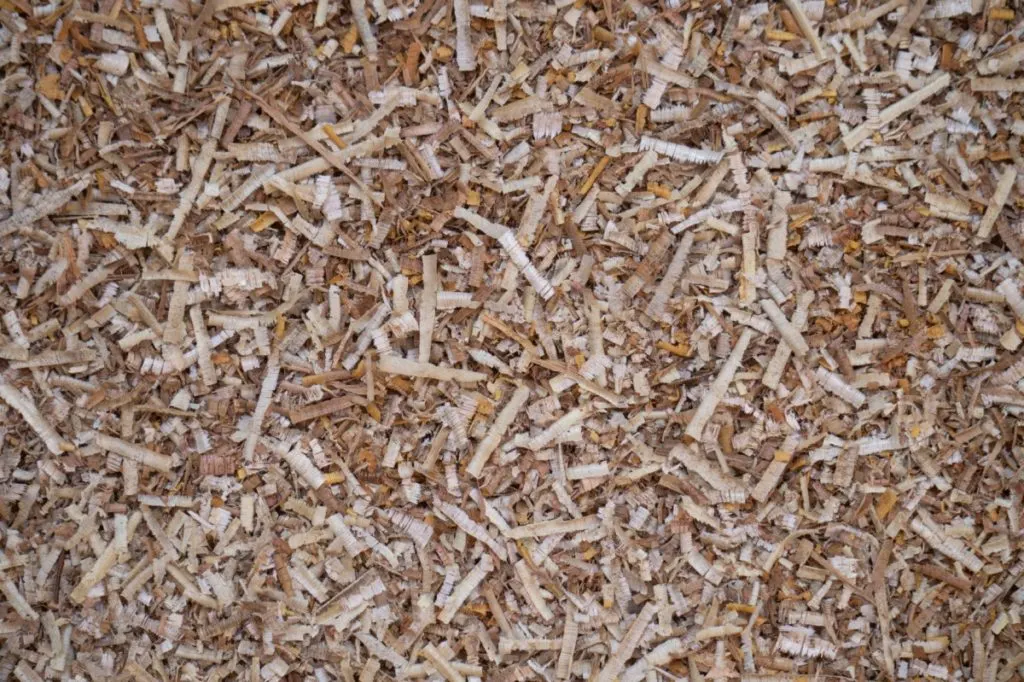
Cedar isn’t a good choice for the chicken coop because it’s an aromatic wood. Chickens have delicate respiratory systems and many chickens can develop breathing issues from being confined to a space with cedar shavings.
Paper

Paper, whether it’s flat newspaper, shredded junk mail, or paper towels are not the ideal bedding for the chicken coop. Paper isn’t especially absorbent, so it won’t do you any favors with the mess and the smell. Flat paper is also not good for the chickens’ feet, as they slide around too much on it.
Mulch/Wood chips
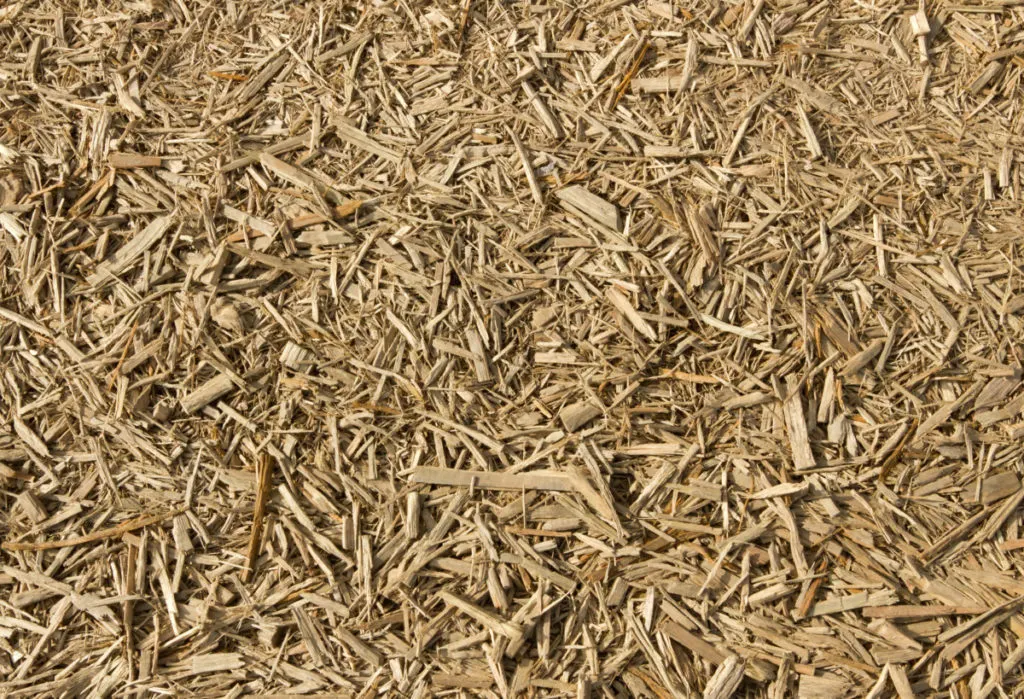
Wood shavings are a good choice for bedding, but wood chips are not ideal. Wood chips and big pieces of mulch are too big to really absorb the mess in the coop, and the sharp edges can cause cuts and splinters on your chickens feet, leading to bumble foot and other foot issues.
Cat litter, sand, or any other small particles

Cat litter is just an obvious no. I know it has the name litter right in it, and it works for your cat, but it won’t work for chickens.
Chickens will eat the clay, which isn’t great for their digestion, and the dust will be very harmful. Besides, this is a very expensive option for laying down in your coop!
I’ve seen many chicken keepers use sand in the coop. This is not a great option because it’s hard to clean, unnatural for chickens, and will make the coop colder in the winter.
Good choices for the chicken coop bedding/litter are:
5. The nesting boxes are all wrong
Chickens naturally lay eggs, and will lay eggs no matter whether you provide nesting boxes or not. Here’s where the issues come in, if you don’t provide the proper nesting boxes, chickens will lay eggs in unexpected places, poop on their eggs, or develop the habit of eating the eggs that they lay. Even worse, they may fight with each other over nesting spaces.
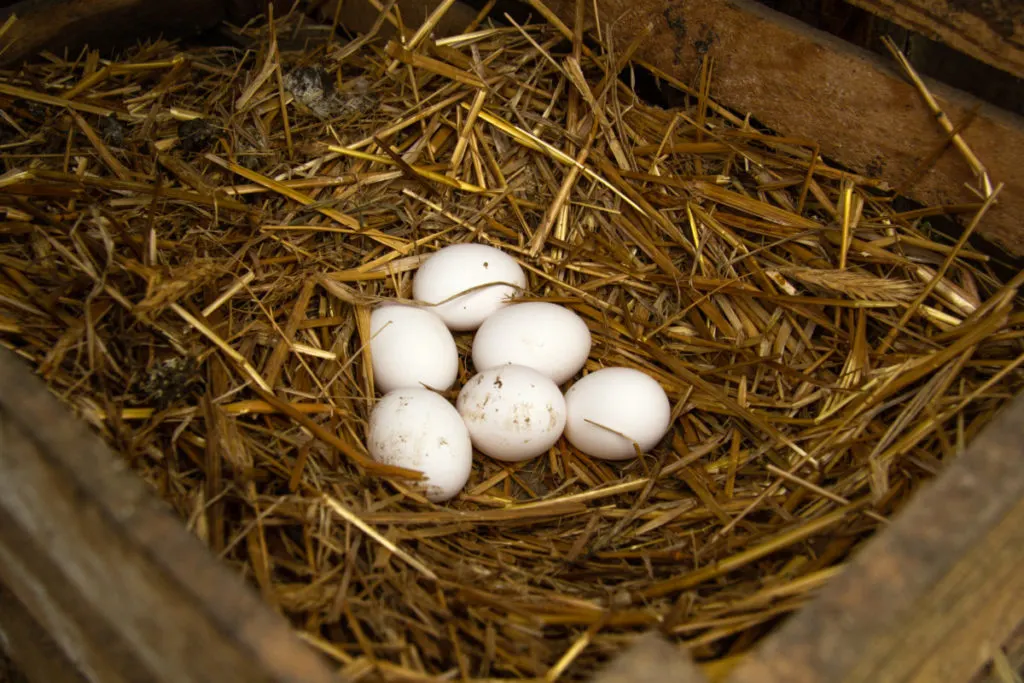
Chickens like dark, private places to lay their eggs. If you provide that for them, it will be better for them and easier for you to find the eggs and keep them clean.
Try to provide one nesting box for every four chickens, that way you know there’s enough space for them all to lay and not fight over spaces. Put the boxes in the darkest corner of the coop, or provide curtains to keep the space dark. Try not to put the boxes next to a window, door, or the roosts so there isn’t a lot of activity while the hens are trying to lay.
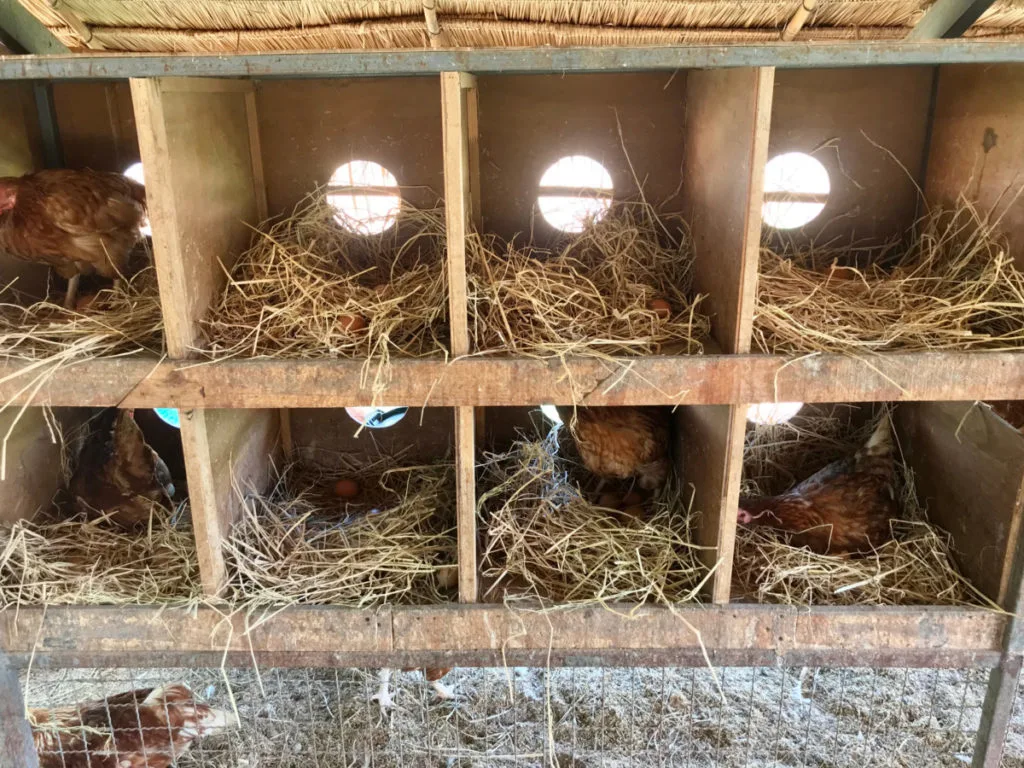
Don’t forget to put bedding inside the boxes too, and keep it clean so your beautiful eggs don’t get dirty!
6. Not providing an outdoor space for the hens
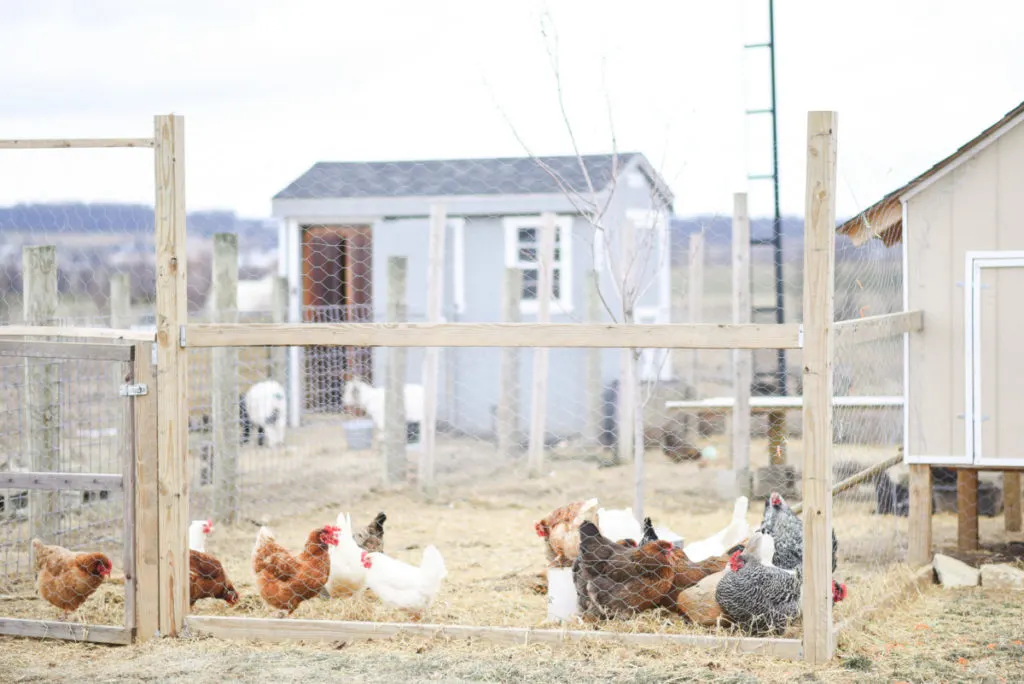
All chickens need outdoor space in order to be happy and healthy. The coop is a wonderful place for them to sleep and lay eggs, but during the day most flocks enjoy being outside. Providing a chicken run is the best way for your chickens to get some outdoor time and still be safe from predators. Make sure the run is protected on all sides as well as the top and bottom to keep out invaders.
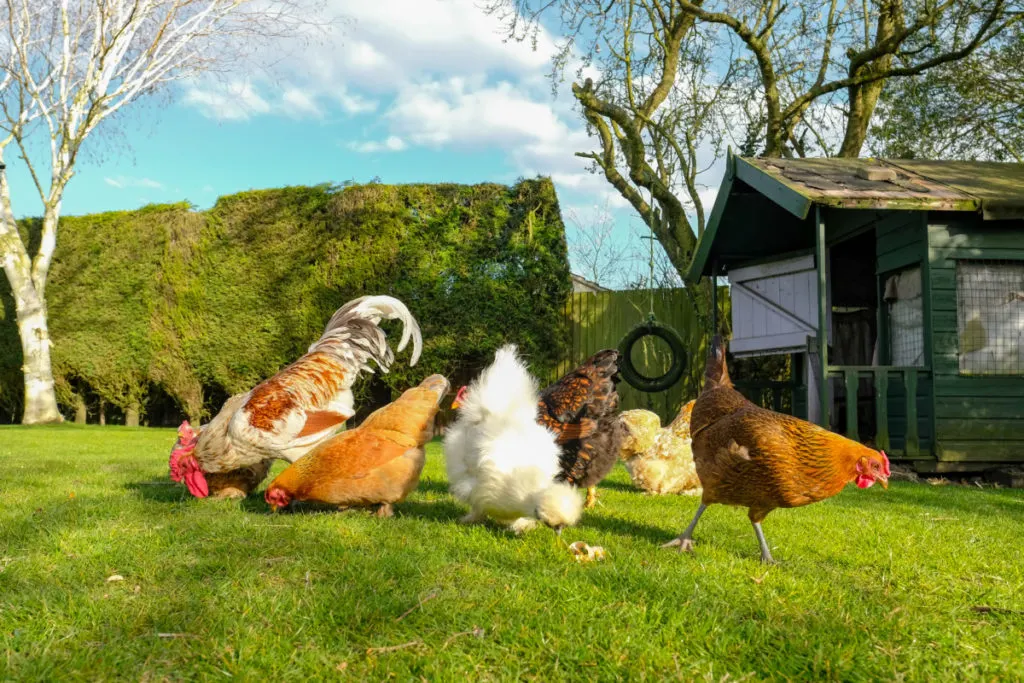
If you don’t have a chicken run, you can let the chickens out to free-range daily for at least a few hours. This allows them to get exercise, forage for food, get some fresh air, and enjoy sunbathing and dust bathing.
7. Not providing ventilation
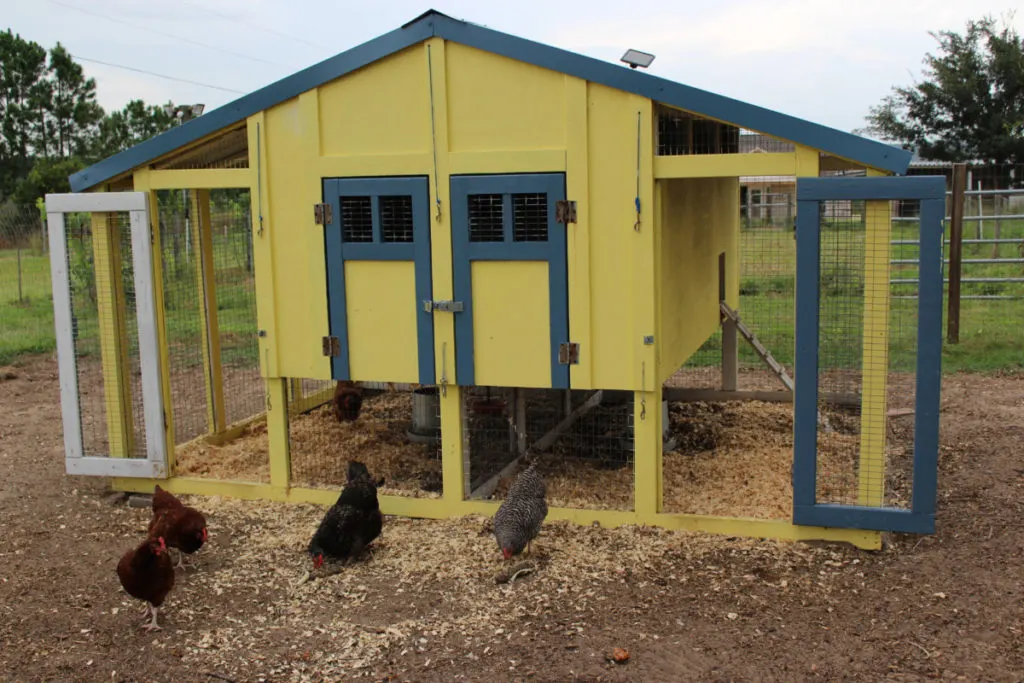
The chicken coop absolutely must have proper ventilation in order to keep your flock healthy. Chickens produce a lot of waste and dust, which quickly taints the air inside the coop. This ammonia-filled and dusty air can cause harm to their respiratory systems and just generally make the coop a miserable place to live.
Ideally, there will be a constant exchange of air in your coop to keep the air clean. Placing ventilation at the top of the walls, near the roof, will allow dirty air to flow out and clean fresh air to flow in constantly. This can be as simple as drilling some holes in the wall or cutting out a piece of the wall and covering it with hardware cloth to keep out pests and predators.
Do be cautious and make sure you don’t put ventilation holes at the same level as the floor, roost, or nesting boxes. This will cause a constant draft on your chickens which can chill them in the winter months.
8. Not cleaning often enough
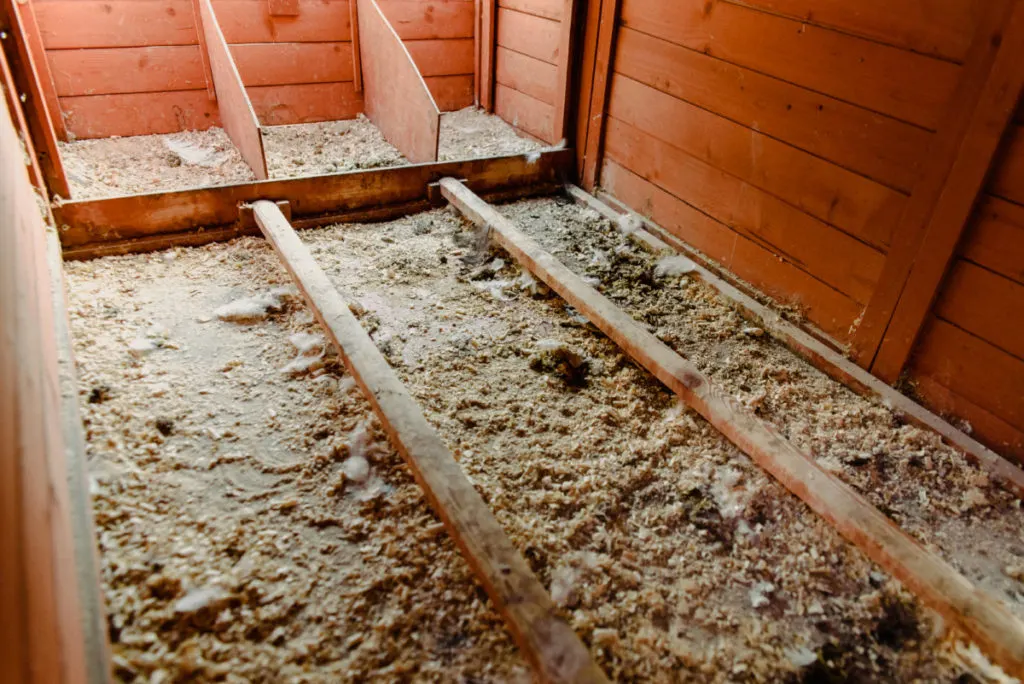
A clean coop is a happy coop! To keep your chickens happy and healthy, make sure to clean their coop once a week, or at the very least, place fresh bedding down weekly and clean bi-weekly.
Many chicken keepers place droppings boards underneath the roost to catch the majority of the waste that chickens create at night. If the board is swept off daily it will drastically reduce the amount of waste in the coop.
We also like to do a deep clean several times a year in the chicken coop. This means we remove everything from the coop, scrub down the roosts, nesting boxes, floor and walls with hot soapy water, then spray with white vinegar to disinfect. We also like to sprinkle Diatomaceous Earth into the bedding when we do a deep clean to help prevent pests like mites from reproducing in the coop and causing an infestation.
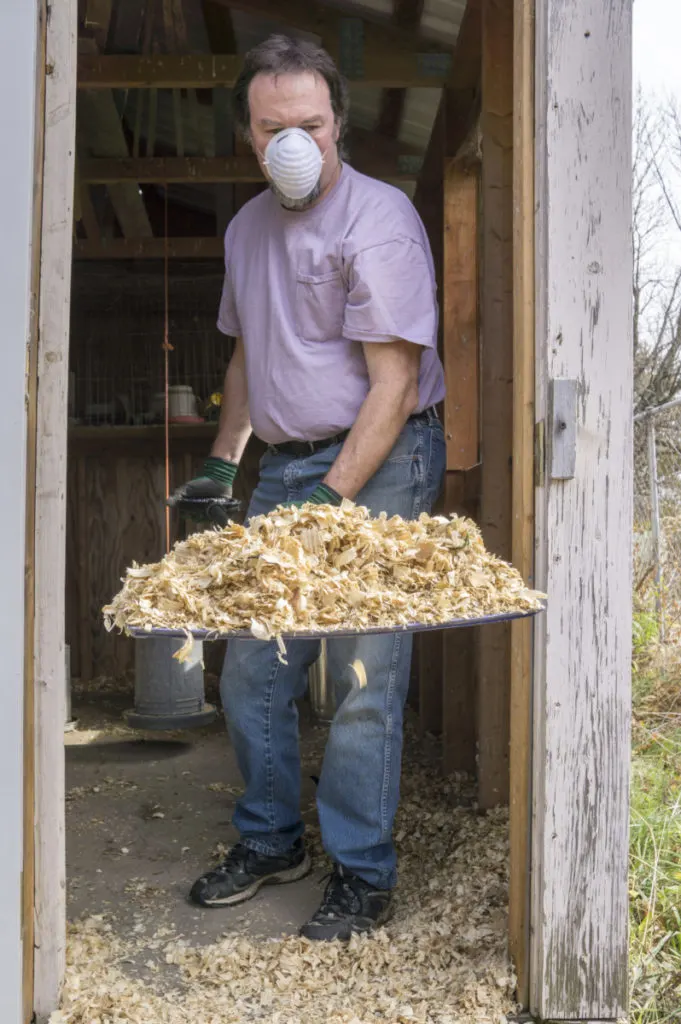
Taking good care of the cleanliness of your coop will go a long way in maintaining the health of your chickens.
9. Making your chicken coop too small
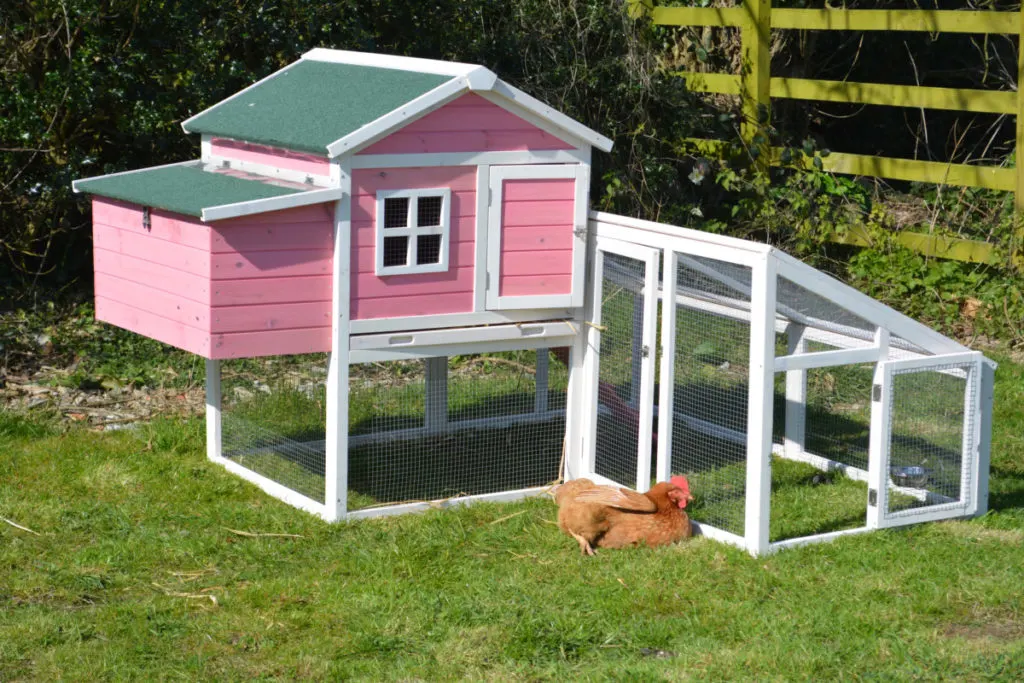
This is a mistake that might not affect all chicken keepers, but we have to warn you about it because it’s pretty common!
You may go into this new hobby thinking you’ll just get a few hens and keep it at that. A few hens only need a small amount of space, so you may build your coop just big enough for them. Here’s where the problem comes in… chickens are known to be pretty addictive, and you may find yourself wanting to add to your flock every spring.
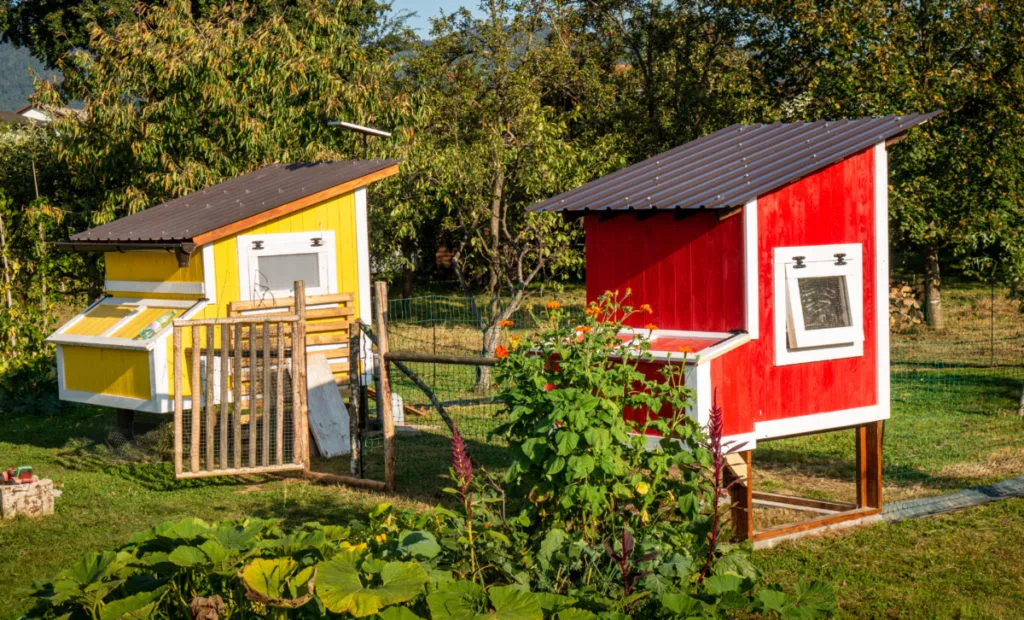
Save yourself the trouble of having to build a brand new coop every time you want to expand, and start off with a coop that’s bigger than what you truly need. At the very least, your chickens will have a little extra space, and you have options in the future if you do choose to pick up a few more hens.
10. Not locking the chicken coop up at night
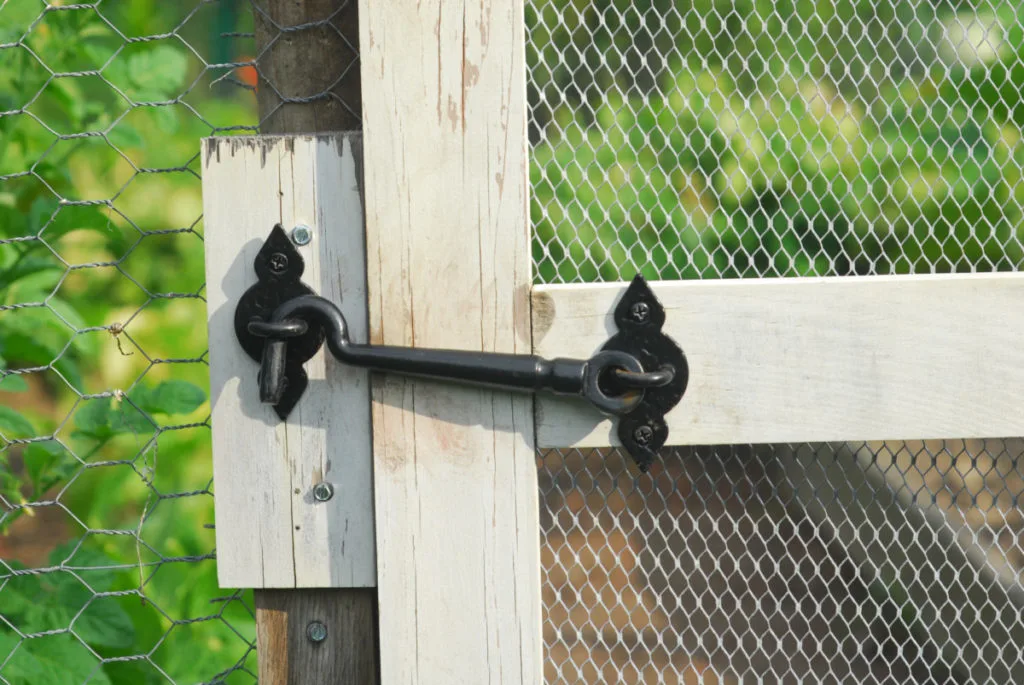
This is easily one of the most devastating mistakes you can make and one of the easiest to avoid. Failure to close and lock the doors and windows to the chicken coop at night can lead to nasty predator attacks, which could lead to the loss of a whole flock in one night.
Predators love to hunt at dusk, and most are smart and courageous enough to waltz right into your open coop and take advantage.
If you’re having trouble remembering to close the coop at dusk, it might be smart to invest in an automatic chicken coop door that closes at sunset. This type of door can be a great fail-safe if you happen to be out and about at dusk or forget to put the chickens to bed.
I hope this post helps you to avoid the chicken coop mistakes myself and many others have made over the years. If you aim to provide a space that’s cozy, safe from predators, clean, and with a healthy dose of fresh air, you’ll have a very happy flock, indeed!
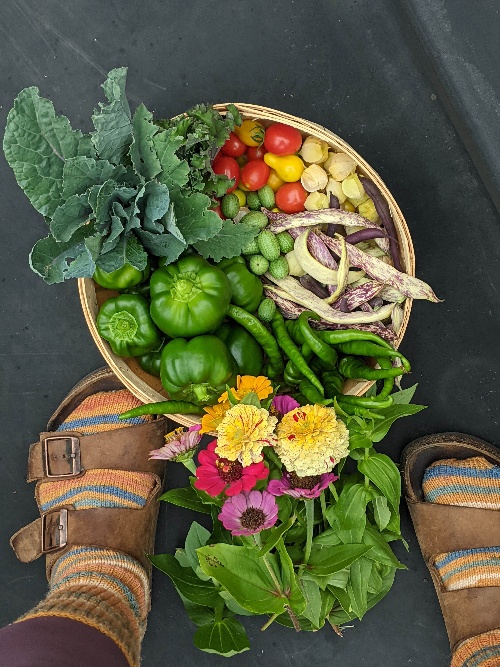
Get the famous Rural Sprout newsletter delivered to your inbox.
Including Sunday ramblings from our editor, Tracey, as well as “What’s Up Wednesday” our roundup of what’s in season and new article updates and alerts.

